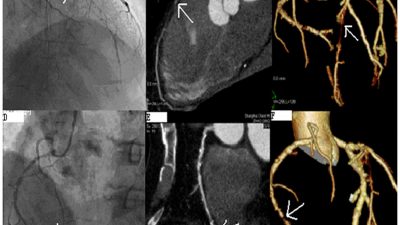Hospital mergers negatively affect quality of care, and hospitals where physicians are employed perform no better on many quality measures than hospitals where physicians are contracted say two high profile articles from last week. These stories and another from October provide important insight into signalling quality care at scale, and we take a look at how ACE accreditation, with its micro-focus on the things that matter for quality, can help even large systems implement continuous quality improvement and avoid these pitfalls.
Hospital Mergers Improve Health? Evidence Shows the Opposite – New York Times Upshot
A high profile article by Austin Frakt, director of the Partnered Evidence-Based Policy Resource Center at the V.A. Boston Healthcare System, summarized studies showing that less competition between health care organizations results in lower quality care. In effect, despite mergers leading to greater economies of scale for the resulting organizations, the resulting loss of competition in community markets creates a net negative effect on quality when hospitals merge. There could be little benefit to cost, as well—one study found that greater market concentration actually led to higher spending. Read more »
Quality of Care Isn’t Better at Physician-Employed Hospitals, Study Shows – Modern Healthcare
In another blow to conventional wisdom, Maria Castellucci of Modern Healthcare summarized a recent study that showed little benefit to quality of care at organizations where physicians were employed as opposed to organizations who contract with physicians. Hospitals often cite having salaried physicians as a benefit for improving the quality of care, suggesting that it avoids perverse incentives and facilitates greater coordination. Coincidentally, we recently highlighted an article in Modern Healthcare where a leader at a top-tier heart hospital argued the benefits of salaried physicians in their maintaining a top-tier status. But this new research showed physician-hospital integration led to improved quality on only two of 29 commonly-accepted quality measures, and suggested that physician-hospital integration might also raise costs. Read more »
Patient Outcomes No Better for Joint Commission-Accredited Hospitals Than Peers – PSQH
Another conventional signal of an organization’s commitment to quality care was called into question by an older report from last October. John Commins for PSQH summarized a report in the BMJ that found accreditation by The Joint Commission to have no significant effect on patient outcomes like mortality, readmissions and patient experience scores when compared to hospitals accredited by a different independent accrediting organization—and little benefit of these conventional accreditations over hospitals reviewed by a state survey agency. Read more »
What to Do When You Care About Quality Care at Scale
These three articles have poked holes in what health care organizations often point to as signals of their commitment to quality. Merging organizations often cite the potential to leverage economies of scale and employed physicians to lower costs and improve care coordination and quality, but patient outcomes seem to suffer regardless when there’s less competition in the health care marketplace. And while large health care organizations favor Joint Commission accreditation to signal their commitment to quality, hospital accreditation doesn’t seem to have much of an effect on patient outcomes.
So, what can organizations do to harness both economies of scale AND improve the quality of care? Quality- and procedure-focused accreditation could help. Rather than accrediting the administrative practices of an organization at large, ACE accreditation focuses on procedural and patient outcomes and the organization’s processes for quality measurement and improvement. This micro-focus on the things that matter for outcomes can help even MACRO-scale systems and states promote, signal and maintain their commitment to quality care, and implement the processes necessary for truly excellent quality improvement and care coordination. The Commonwealth of Pennsylvania, for example, understood the value of ACE accreditation at scale for all patients in the state undergoing elective PCI in hospitals without onsite surgery—requiring these facilities to be accredited with standards at least equal to ACE’s rigorous and quality-focused standards.












